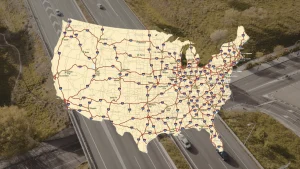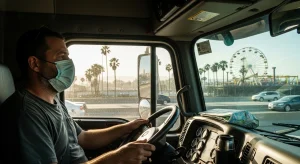The integration of autonomous trucks into our transportation landscape sparks both anticipation and skepticism.
Despite objections, three emerging companies—Aurora Innovation, Kodiak Robotics, and Gatik AI—are seeking to deploy autonomous trucks on Texas roads, bypassing the need for safety drivers.
These companies, backed by extensive testing, employ software and various sensors, including cameras, radar, and lidar. To date, these startups have conducted freight transportation for major companies such as Walmart Inc, Kroger Co, FedEx Corp, and Tyson Foods.
Acknowledging the slim margin for error in implementing the technology, the companies argue that potential benefits, such as improved road safety and reduced transportation costs, justify the risks.
Cathy Chase, president of Advocates for Highway and Auto Safety, expresses concerns about the lack of regulation, transparency, and comprehensive data collection. Opposition also includes the International Brotherhood of Teamsters, a union with 1.3 million members representing drivers and warehouse workers who oppose this potential industry shift due to labor-related issues.
Critics point out that autonomous trucks pose significant risks when operating at high speeds on highways and carrying weights of up to 80,000 pounds. The absence of cohesive federal regulation has led states to independently formulate regulations, resulting in a landscape of fragmented regulations with no clear decisions to date. Currently, it is primarily the southern states that authorize the operation of self-driving trucks.

Companies argue that, in addition to reducing wage costs, autonomous trucks can surpass the 11-hour daily driving limit for human drivers. By constantly scanning their surroundings, these vehicles achieve faster reaction times. This, coupled with consistent driving at controlled speeds, could result in emission savings of 10% or more.
Another prominent argument is that human drivers do not guarantee safety. In 2021, there were 5,700 fatal accidents involving large trucks, according to statistics from the Federal Motor Carrier Safety Administration.
However, the FMCSA suggests that autonomous trucks may not be exempt from accidents. Reports indicate that nearly two-thirds of fatal accidents occur when a person, object, animal, or another vehicle veers into the truck’s lane. This implies that data collected by an autonomous truck’s computer system will be crucial in determining the cause of an accident.
Autonomous driving companies acknowledge that state and federal regulators have the authority to remove vehicles and halt their operation if deemed an unreasonable risk to the driving public. The transformation of the road transportation sector will depend on whether the results of early autonomous trips without safety drivers are successful.
The integration of autonomous trucks into our transportation landscape sparks both anticipation and skepticism. While companies champion the potential safety improvements and cost savings, critics raise valid concerns about regulation, transparency, and the impact on the workforce.

United States Numbered Highway System: how does it work?
The U.S. Numbered Highway System provides an integrated national network of roads designed to facilitate long-distance travel. The numbering of U.S. highways follows a structured

In brief: weigh stations, young drivers, and fuel tax reform in the trucking industry
South Carolina debuts virtual weigh stations for trucking, as ATA pushes youth driver program, and states debate fuel policies. South Carolina launches virtual weigh stations

The Wildest Truck Modifications on the Road Today
Truck customization has become a serious industry, with some builds rivaling high-end RV conversions in complexity and cost. From redesigned sleepers to upgraded suspension systems, these modifications do more than change appearance — they alter weight, electrical load, and the technical profile of the truck.

The most dangerous states in the U.S. during winter weather
While winter conditions are hazardous across the country, some states experience significantly higher accident rates during this season. A study by Samsara, a safety and

Winter storm disruptions lead to FMCSA HOS relief in 40 states
Motor carriers and drivers providing direct assistance in relief efforts in the affected states are covered by a hours-of-service (HOS) exemption. Over the weekend, a

Air Quality Alert in California Impacts Transportation
An air quality alert has been issued as high levels of fine particle pollution (PM2.5) trigger health warnings across several parts of California. The situation is affecting visibility, driver health, and logistics operations, forcing transportation professionals to take extra precautions on highways and in urban corridors
